Keep the Tail Wagging is supported by pet parents. I occasionally earn a commission (at no additional cost to you) when you click through an affiliate link to one of my favorite products. Thank you for your support. Read More
On February 4, 2021, I found a lump beneath Scout's jaw. It's lymphoma. I will be documenting our experience to help others who find themselves facing a canine lymphoma diagnosis.
Scout's veterinarian detected the cancer after sending off the sample from a fine needle aspirate of his lymph nodes to the lab. We had our first appointment (three hours) with the oncologist yesterday, and I'm overwhelmed yet hopeful. Dr. Evans was direct and got to the point, which I appreciated. So, let's start with the reality of canine lymphoma, and then I'll share our game plan.
The Truth About Canine Lymphoma
The following are current truths about canine lymphoma that the traditional veterinarian community believes. While I believe that these are all true, it's always important to remember that every dog is different, and those of us who feed fresh food and are conservative with vaccinations and other toxins may see better results in our dogs.
1 – There isn't a cure for canine lymphoma; we aim to obtain remission for as long as possible. Few dogs are cured of lymphoma (but very few offer hope). According to UPenn, where I found the “hope,” the majority of dogs fall out of remission at some point, and, at this time, we can return to chemo treatments.
2 – Lymphoma is a liquid cancer that can spread everywhere and requires us to treat the entire body. Scout won't undergo surgery to remove a tumor; now, he only has swollen lymph nodes.
3—An important test we opted for was to determine if Scout has B-cell or T-cell (not good) lymphoma. His doctor believes that he has B-cell because most patients with B-cell lymphoma are healthy at the time of diagnosis and remain healthy through treatment. On the other hand, dogs come into the vet's office sick with T-cell lymphoma because T-cells are more aggressive, and the dogs test high in calcium in the blood (Scout did not test high).
4 – Chemotherapy is the best way to treat this cancer; while I can choose a natural option, it may not be as successful. Dogs that don't undergo chemo live 1/2 the amount of time as dogs that do undergo chemo (with exceptions). Thankfully, dogs handle chemo much better than humans. I said above that lymphoma is a liquid cancer (my vet's words), and it can go anywhere; it's also an aggressive cancer that quickly adapts to the various cancer drugs, which is why the 25-week CHOP protocol is highly recommended (discussed below).
Our First Visit with an Oncologist
When I received the cancer diagnosis, I immediately began calling oncologists in the area and learned that everyone was scheduled out through mid-March and into April. So we were lucky to get yesterday's appointment. After my research, I knew the direction I wanted to take with Scout, but I wanted to hear from the oncologist first.
My brain is still cloudy with all of the information I received. So, here goes…
Dogs, MDR1, and Chemotherapy
When the vet got a look at Scout, she was concerned that chemotherapy wouldn't be an option or we'd have to go with a medication that didn't work as well because the herding breeds (border collie, blue heeler, Australian shepherd, and collie) have a variant that makes them sensitive to various medications including chemo and anesthesia.
Thankfully, when I tested my dogs with Embark Vet, part of the health screening was for the MDR1 variant. Scout tested negative, which saved us time and money because we could cross a test off the list.
What We Can Expect from Chemotherapy
Chemotherapy has a negative connotation. When we think of someone going through chemo, we think of nausea, vomiting, hair loss, and weight loss. Thankfully, dogs handle chemo better than humans, and Scout won't experience hair loss. There's a good chance he won't have any side effects. But there are a few things we need to know.
1 – Chemo causes bone marrow suppression, which means that the chemo is working because it kills rapidly dividing cells – i.e., cancer cells and bone marrow cells (but they rapidly replace); if bone marrow drops too low, dogs can get an infection, which his oncologist will monitor.
2—Chemo may cause tummy upset, vomiting, diarrhea, and lethargy. These side effects are minor and can be treated with medication, and, with many dogs, they don't last long if they happen at all.
3 – When choosing the chemotherapy protocol, my dog's heart health must be considered. On Scout's first appointment, his doctor listened to his heart to ensure it was strong and healthy. It is.
4 – Lymphoma responds best when using drugs on a rotating basis to avoid the cancer becoming resistant to the drugs. The option is to use just one chemo drug, but the cancer would quickly adapt to it; the CHOP method (discussed below) keeps this from happening.
5 – When Scout's lymph nodes return to normal, he's in remission, and we want him to stay in remission throughout the chemotherapy protocol. If he's still in remission after the chemotherapy protocol, we'll have to monitor him until the cancer returns (there is no cure). Some dogs come out of remission during chemo; others may come out 4-5 months after the chemo protocol. So, after we go through chemo, I plan to make antioxidants (turkey tail and golden paste) a big part of his diet. I'll also continue adding fresh food (both raw and cooked) to his diet to keep cancer at bay.
The CHOP Protocol to Treat Canine Lymphoma
I chose to go with chemotherapy. I believe in using both traditional and holistic modalities to treat my dogs. While some choose to avoid chemo, I believe Scout will have a better shot of a longer, healthy life going this route.
The CHOP protocol is a recommended treatment for canine lymphoma (and other cancers). It's a series of four appointments (a different chemo drug for each appointment) that repeats four times. Canine lymphoma adapts to the chemo drugs, so the CHOP protocol is hitting the chemo with different drugs, not allowing the cancer to adapt and spread.
The protocol consists of two injectable drugs and two oral drugs (L- asparaginase, vincristine, Cytoxan, prednisone, and doxorubicin) given weekly for six months. The average survival for a dog with B-cell lymphoma is about a year, with 20-25% of dogs making it to two years. Dogs with the aggressive form of T-cell lymphoma survive about 1/2 the time as dogs with B-cell lymphoma. While dogs with T-Zone lymphoma, a slow progression cancer, may live several years after diagnosis.
Drugs to Treat Canine Lymphoma
The following is a list of drugs we received as we started this journey:
- Maropitant – prevents vomiting via injection or tablet.
- Prednisone – suppresses the immune system, stops the spread of cancer cells, and kills cancer cells.
- Ondansetron – used to treat vomiting.
- Metronidazole – used to treat diarrhea and inflammatory bowel disease.
- Gabapentin – pain relief and anticonvulsant.
- Trazodone – anxiety relief (before vet appointments).
Going through the list, you can see that two drugs treat vomiting; this is because one may be better than another depending on the situation – at this time, we don't know, and it's better to have something on hand than allow Scout to be uncomfortable while I wait for a veterinarian appointment, exam, and prescription should he feel sick.
I've only had to give Scout the Prednisone, starting at two pills daily and reducing the dosage weekly. Prednisone is no joke, as this drug brings on ravenous hunger, increased drinking and urination, and potential weight gain. Decreasing the dosage decreased these symptoms. I added bone broth to the water bowls and fed Scout low-fat treats – low glycemic vegetables, including romaine lettuce (which he loved) and antioxidant-rich berries (blueberries, blackberries, raspberries).
Herbs and Other Supplements to Treat Canine Lymphoma
I will add the following herbs and supplements to Scout's diet to give him a better long-term prognosis.
- Artemisinin – can reduce node size and make animals feel better. I give this to Scout in the morning.
- Xiao Chai Hu Tang – this blend helps to induce cell death (apoptosis) in cancer cells while slowing cell growth and division. It also boosts the immune system. I give this to Scout in the evening.
- CBD Dog Health-EASE – CBD oil can lessen any adverse side effects of the chemo treatment while inducing cancer cell death (apoptosis). He gets a full dropper of their CBD oil 2-3 times daily.
- Prostabel – this supplement promotes and protects healthy cells, which is important during chemotherapy. I added Prostabel to Scout's morning meal.
- Apricot Seeds – apricot seeds have been used for years to fight cancer because they are rich in amygdalin (aka vitamin B17), a natural element found in bitter almonds, the seeds of apricots, red cherries, apples, peaches, and plums. The medical community warns that apricot seeds are toxic to humans and dogs because as our intestines break it down, cyanide is produced,w which some feel is only toxic to cancer cells. At this time, the “evidence” that this works is anecdotal, but it is also compelling. I've read that dogs should get one seed per 10 pounds, and I've decided to be conservative and give Scout 2-3 pills per day; however, I'm adding multiple sources of B17, so I'm sticking with one pill daily in his evening meal. Other sources of vitamin B17 include celery, carrots, raspberries, blueberries, strawberries, blackberries, flax seeds, chia seeds, sesame seeds, sprouted alfalfa, and wheatgrass.
- Rx Vitamins Hepato Support – I need to keep his liver healthy since Scout's system will be dealing with a lot during this time. This supplement supports liver functions with a big dose of milk thistle and other nutrients, including B vitamins that support tissue repair and regeneration. UPDATE: At the beginning of CHOP, his blood work showed elevated liver levels; after adding this supplement to his diet regularly, his levels normalized.
I learned about the first two supplements on the site PathWithPaws.com, which has a wealth of information about canine cancer. My experience with Sydney taught me to go slowly with the herbs, so on first night, Scout only received one capsule of artemisinin (dosage is two/100 mg twice daily) and a 1/4 tsp of the Chinese herbs.
There are many more supplements that I can add to Scout's diet, but I'm taking it easy to avoid overwhelming his system. I was also advised NOT to add antioxidants to his diet for fear that they will protect both the healthy and cancerous cells (read more below).
Scout's Tolerance of the Supplements
So far, Scout has tolerated everything well. I tried homeopathy for a period but couldn't tell if it was working or not; it wasn't making things worse. It's tempting to throw everything at him, but I also wanted to identify what was and wasn't working.
A Raw Food Diet and Chemotherapy in Dogs
I was warned that I would need to take Scout off of a raw food diet while undergoing chemotherapy because the bacteria in the food can cause an issue; however, I'm not worried. I continued to feed him raw and cooked dog food, commercial and DIY, through his treatment without issue.
Essential Oils and Lymphoma in Dogs
I'm also using essential oils from animalEO to keep Scout's spirit, energy, and strength up. If you are reading this and saying, “essential oils are toxic to animals,” this is a myth. Buying from quality brands that source ingredients ethically and responsibly is important. Last year, I began adding animalEO oils to my essential oils collection, and it was the best decision I made (thanks again, Diane). These oils are formulated by Dr. Melissa Shelton, a holistic veterinarian who is an expert in essential oils.
The following is my regimen:
- Monday: Aroma Boost Collection—I apply five oils in a specific order to Scout's back from tail to neck (in that direction).
- Wednesday and Friday: Boost in a Bottle – Dr. Shelton reduced the Aroma Boost Collection to one bottle, which I use between the collection applications for an added boost.
- Sunday: Liver Boost – I sprinkle a small amount on my hands and massage this oil along Scout's sides and tummy.
- Daily Diffusing of Strength, Calm-a-Mile Neat, Sunshine in a Bottle, and Warmth – alternating oils daily based on what I like. Sometimes, I'll allow Scout to choose (he'll lick at the scent he likes).
Dr. Shelton's Animal Desk Reference Guide is a detailed guide to oils that can be used with our pets, the benefits, and how to use them. Although I have this guide, I will only apply animalEO oils to my dog.
What About Acupuncture?
Studies have shown that acupuncture helps alleviate the side effects of chemo. Acupuncture can also offer pain relief, boost the immune system, and improve a dog's quality of life. Scout had a monthly appointment with a veterinarian acupuncturist a year into his treatment. Had I been able to find a local acupuncturist when he started chemotherapy treatment, I would have started him sooner.
Vaccinations and Chemotherapy in Dogs
I practice minimal vaccinations and believe my dogs have received sufficient protection that lasts longer than traditional veterinary medicine tells us. I do not vaccinate senior dogs, and Scout didn't receive any vaccines during this time; he was technically a senior dog, so he wasn't due for vaccines.
Our oncologist also warned me to keep Scout away from dogs we don't know because the chemotherapy drugs will lower his immune system. This wasn't a concern as I don't allow my dogs to interact with dogs we don't know, and I've formulated a diet that supports Scout's immune system.
Antioxidants and Chemotherapy in Dogs
One shocking factoid I received was that I must remove all of the antioxidants from Scout's diet because a teeny study revealed that combining antioxidants with chemotherapy can result in a negative outlook. The problem with this “study” and the articles reporting this information is that there aren't any details on which supplements were identified as problematic, we're not told if whole foods are better than these supplements, and two of the nutrients are important in a dog's diet – B12 and Omega 3 fatty acids.
I reached out to the dog lover community, and people shared more information that has me wondering if I need to remove two supplements from Scout's diet while he undergoes chemotherapy:
- Turkey Tail Mushroom – boosts the immune system while fighting cancer.
- Golden Paste – may reduce joint and arthritis pain, reduce inflammation, and kill cancer cells.
- Coenzyme Q10 – I give this to my dogs for heart health; it also boosts the immune system and supports our dogs' overall health. This is a great supplement for senior dogs.
From a blog post about one pet parent's success with cancer:
“Jeff Gold writes, ‘In the case of preventing cancer, you need to protect cells with antioxidants to prevent oxidative damage which can cause them to turn into cancer cells. In the case of treating cancer, you need to kill cancer cells with a pro-oxidant, while still protecting normal healthy cells. If you give antioxidants (normally recommended to prevent cancer) to a cancer patient, these will not only protect the normal cells, they will also protect the cancer cells!'”
From a study about anti-oxidant supplementation while going through chemotherapy says the opposite:
“This review constitutes a total of 174 peer-reviewed original articles from 1967 till date comprising 93 clinical trials with a cumulative number of 18,208 subjects, 56 animal and 35 in vitro studies. Out of total cases reported in 174 research articles, 138 research papers have reported consequences of antioxidant supplementation during or after chemotherapeutic setting of which 122 articles (88%) states that antioxidants mitigates the toxicities induced by chemotherapeutic agents. Out of 130 papers, 91 articles (70%) reports that the therapeutic efficiency of chemotherapy increases in presences antioxidants. Conjugate antioxidant supplementation was also seen to increase the survival time in the patients according to 26 reports (63%) of 41 research article. Thus our comprehensive data therefore suggests that antioxidants do not interfere with chemotherapy and can be prescribed during clinical setting to increase the standard of life.”
CHOP Chemotherapy Treatment
So far, Scout is tolerating chemotherapy well, with the only side effects being increased hunger and thirst from the prednisone, vomiting from drinking too much water too quickly (which happened 4x), and diarrhea after the Vincristine. I began adding canned pumpkin to his diet to help with the stool.
- Week 1: CBC (blood panel), Vincristine – injection
- Week 2: CBC, UA (urinalysis), Cytoxan – pill
- Week 3: CBC, Vincristine – injection (Scout went into remission but went out as I started decreasing the dosage of prednisone, I do not know if they were related)
- Week 4: CBC/CHEM, Doxorubicin – 30-minute IV (cooked food for the week following)
- Week 5: CBC – no chemo on this day!!! (Scout officially went into remission after this appointment)
- Week 6: CBC, Vincristine
- Week 7: CBC, Cytoxan
- Week 8: CBC, Vincristine
- Week 9: CBC/CHEM, Doxorubicin
- Week 11: CBC, Vincristine
- Week 13: CBC, UA, Cytoxan
- Week 15: CBC, Vincristine
- Week 17: CBC, Doxorubicin
- Week 19: CBC, Vincristine
- Week 21: CBC, Cytoxan
- Week 23: CBC, Vincristine
- Week 25: CBC/CHEM, Doxorubicin
UPDATE: Scout's Experience with Canine Lymphoma
Scout remained in remission for four months following the end of the chemotherapy treatments. He lived for more than 525 days after his initial cancer diagnosis. He was happy, well-behaved, and pain-free until the end. He began slowing down a couple of weeks before he passed away. By then, he had been getting Chinese herbal blends, recommended by a local holistic veterinarian, and acupuncture.
He developed a fever, and his organs began to fail, and a day later, he was gone.
I'm thankful for my experience with my dog because he taught me much about canine health. The main lesson is that cancer isn't a death sentence, and how we raise our dogs contributes to the outcome. Scout had been raw fed from the age of six weeks. He was active and lived a stress-free life. I think this gave him what he needed to live with cancer.
Why Scout Lived So Long
I believe Scout lived a long life after his cancer diagnosis because he had a strong immune system due to fresh food diet, whole food supplements, daily exercise, a low stress life, and happiness. He was such a happy dog, and I made a point of enjoying each day with him. I didn't allow myself to fall into a depression while he was with us. The day I helped him cross over, I had a deep sadness combined with a deep sense of peace and gratitude for the time we had with him.
Scout taught me a lot about raising healthy dogs, and I can apply what I learned to our dogs daily. And I pray that we never have another cancer diagnosis.





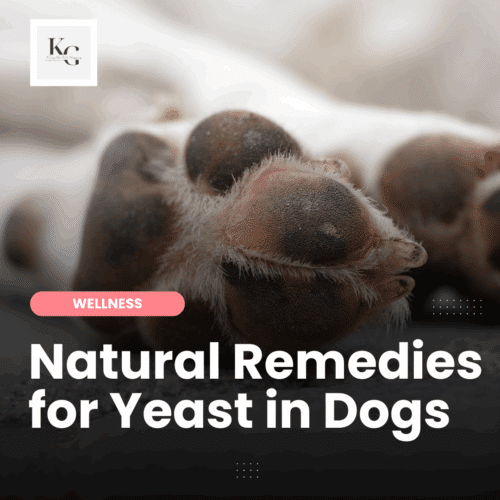
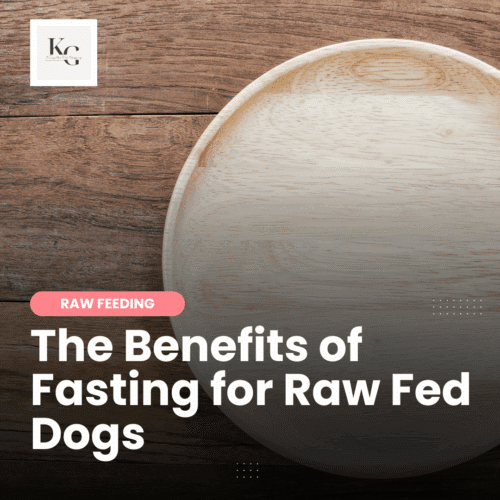
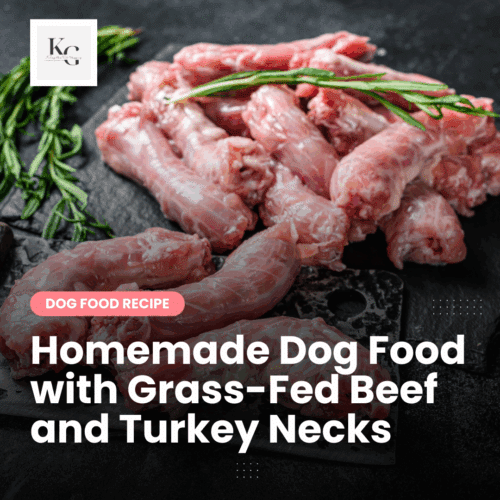
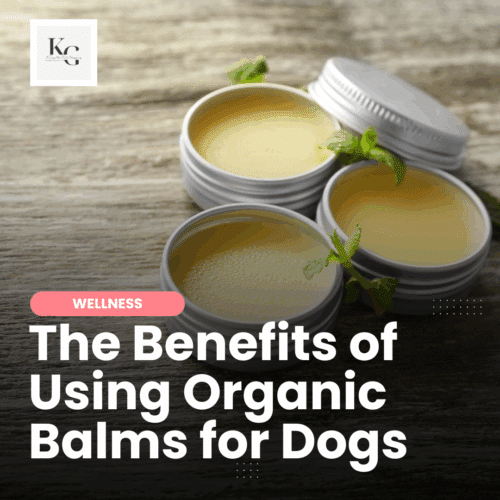

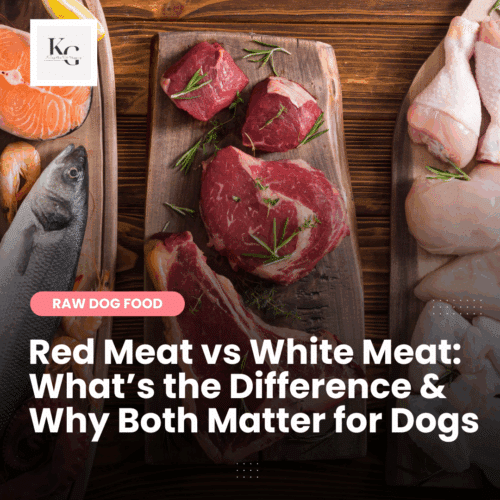
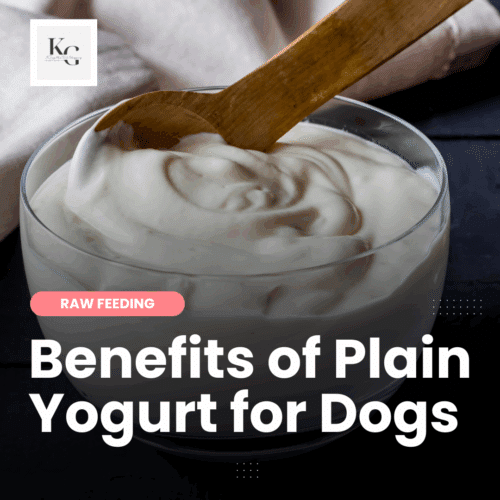


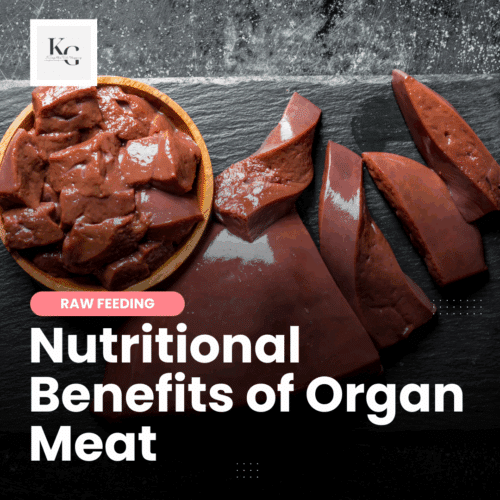


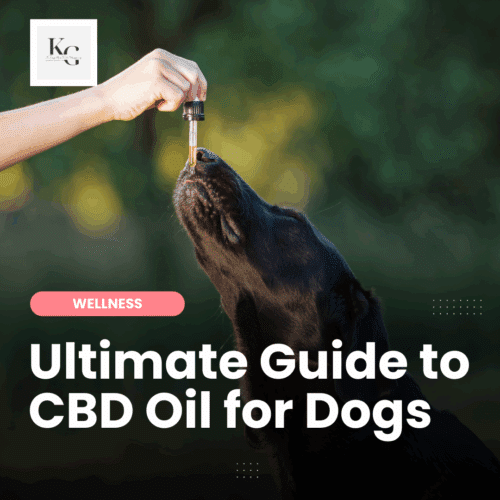
Thanks for the warning and I’m so very sorry for your loss. Thankfully, Scout did fine and he was only on it for a few weeks because he went into remission quickly.
Thank you again for the warning.
Please be careful with the pred. My 13 yr old Italian greyhound had lymphoma and because of his age we opted for prednisone instead of chemo and also the artemisinin, he always ate home cooked and a very healthy diet, no vaccines and followed holistic protocols. He bled out internally, the prednisone caused stomach bleeding. I question my choice a lot, as I have always been against steroid therapies. Best to you and Scout.
Thank you for sharing this. Our 3 yr old Newf was diagnosed in Dec. We just finished our chemo. We went with the 5 treatments of just the doxo. Please keep us updated and best of luck to you all!
Kimberly, thank you for sharing your experiences, taking the time,this will help so many of us with our pups, I feel confident on your blogs and it encourages me to do so much more research. Lola is turning 11, so far so good I decided to do a full exam on her central organs, never would have it crossed my mind. Thank you !!